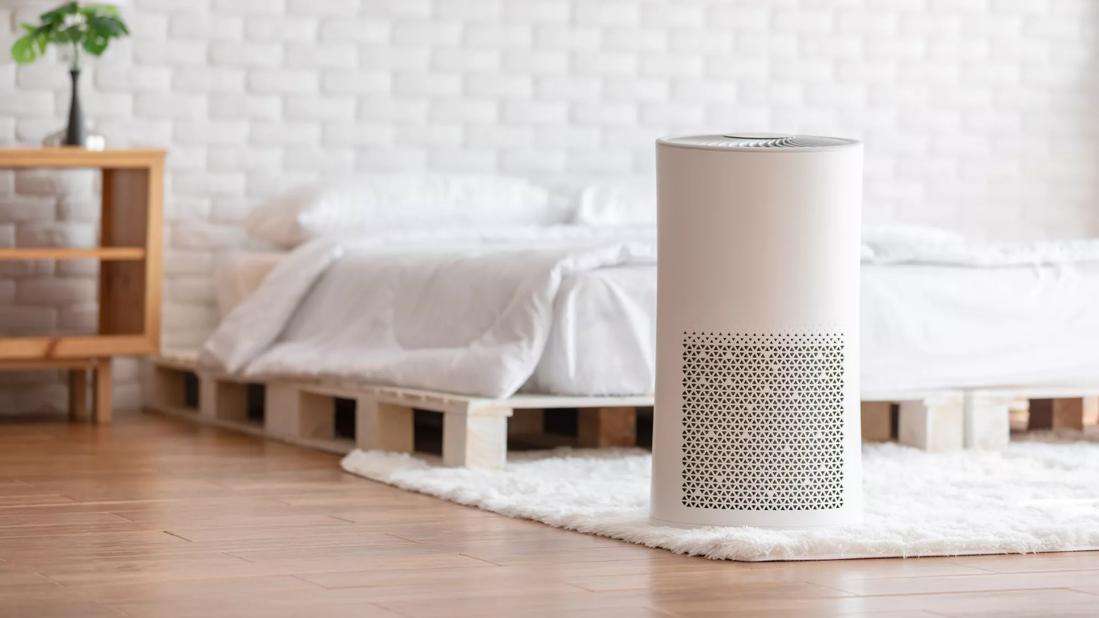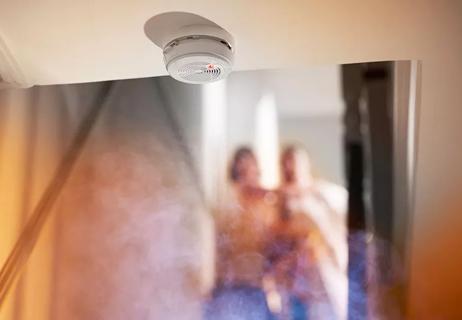Benefits may go beyond breathing

There’s nothing like the feeling of being able to breathe easily, especially if you suffer from lung or heart problems. That’s where air purifiers come in. Installing an air purifier in your home or office might help you breathe better, but can it also improve your heart health?
Advertisement
Cleveland Clinic is a non-profit academic medical center. Advertising on our site helps support our mission. We do not endorse non-Cleveland Clinic products or services. Policy
It’s possible, says pulmonologist Rachel Taliercio, DO. Dirty air can either cause or worsen respiratory symptoms such as difficulty breathing, cough and upper airway congestion, but it has also been implicated in heart disease.
“Airborne toxins are irritants,” says Dr. Taliercio. “They have chemical compositions that lead to changes in your blood chemistry, which in turn causes adverse health effects.
For instance, one study found an association between air particulates and carotid artery disease, a condition that can lead to stroke.
“To the extent that you could eliminate some of those particles in the air and reduce the exposure, you’re going to reduce effects on health,” she says.
Many of the potential benefits of using an air purifier are related to your lungs, particularly for conditions such as asthma.
“By filtering out fine particles, purifiers help clean the air you breathe,” says Dr. Taliercio. “Purifiers have been shown to alter the blood chemistry in a way that may benefit heart health, too.”
Several studies have shown improvements in blood pressure and heart rate after the installation of air purifiers. For example, one small-scale study of 35 Chinese college students found that the devices improved air quality, reducing levels of fine particulate matter by 57%. Improvements were reported in both blood pressure levels and lung function among the students. Another study found that indoor HEPA air filters improved respiratory health in those with asthma.
Advertisement
However, doctors don’t have any long-term data that points to air purifiers reducing strokes, heart attacks or death rates.
“These are all endpoints that look at changes in the blood chemistry that can be monitored, and presumably will have benefits for the heart,” she says. “But such studies have yet to be conducted.”
Since air purifiers can be costly, it’s important to team up with your doctor to weigh in on who is most likely to benefit from them. Air purifier users are most likely to reap health benefits in areas with the dirtiest air, and that could mean living in a city with poor air quality or near factories, for example.
“Benefits may also be higher in young children, elderly and people with heart and/or lung disease,” says Dr. Taliercio.
In particular, these devices may help people who already have diseases that affect the lungs like asthma, cystic fibrosis and conditions of the immune system. If you have difficulty fighting infections, getting an air purifier might be beneficial.
Advertisement
Learn more about our editorial process.
Advertisement

Open the windows, keep a clean house and consider putting in preventive features like carbon monoxide detectors

Though they release a small amount of VOCs into the air, there isn’t enough strong evidence to say they’re dangerous to your health

There’s no safe way to find, handle, repair or remove asbestos yourself — it’s always a job for a professional

Investing in a humidifier and keeping yourself hydrated can help you stay healthy despite dry air

Most post-fire deaths occur because of smoke inhalation

6 tips for protecting your lungs while you work

You may notice a decrease in your LDL ‘bad’ cholesterol in about four weeks

Eating heart-healthy foods, moving around more and getting quality sleep are a few ways to get started

Wearing a scarf, adjusting your outdoor activities and following your asthma treatment plan can help limit breathing problems

Your diet in the weeks, days and hours ahead of your race can power you to the finish line

When someone guilt trips you, they’re using emotionally manipulative behavior to try to get you to act a certain way